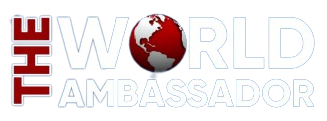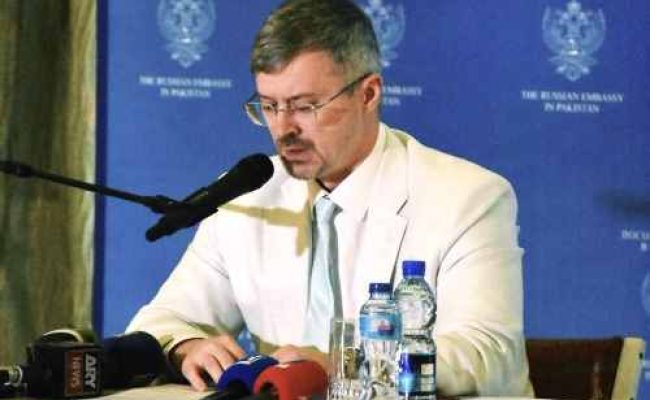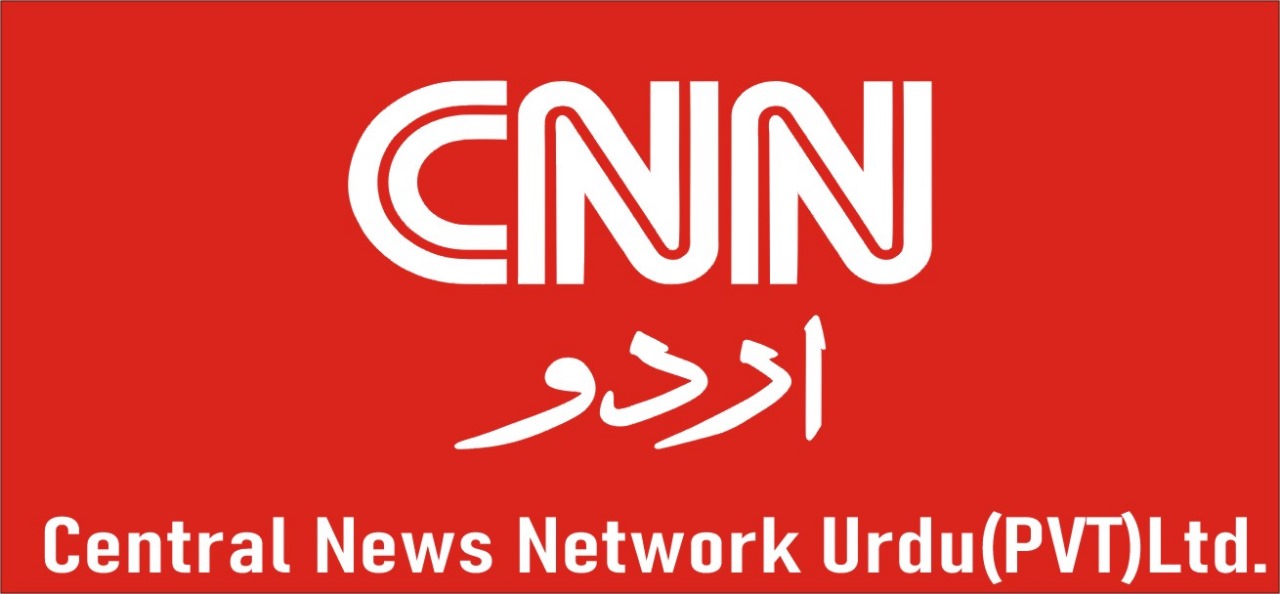By Adnan Hameed
TWA
______
The Russian Ambassador to Pakistan, Albert P. Khorev, held a briefing today to discuss the ongoing situation in Ukraine, marking the third such briefing of the year. Addressing members of the media, Ambassador Khorev underscored the importance of obtaining information from multiple sources, expressing concern over the influence of Western news agencies, which, he stated, are focused on promoting the interests of NATO countries while vilifying Russia.
According to the press note, the ambassador Khorev highlighted the significance of September 30, 2022, when treaties were signed by President Vladimir Putin, formally integrating the Donetsk People’s Republic, Lugansk People’s Republic, Zaporozhye, and Kherson regions into the Russian Federation.
The ambassador emphasized the escalation in hostilities, accusing the Kiev regime of resorting to large-scale terrorist activities targeting civilians in Russian-controlled territories. He pointed to the Ukrainian invasion of the peaceful Russian border region of Kursk on August 6, 2024, describing the actions of Ukrainian fighters as brutal and indiscriminate. According to the ambassador, Ukrainian forces attacked civilians, destroyed civilian infrastructure, and displayed Nazi symbols.
Khorev also condemned the United States and European nations for supporting Ukraine’s military activities, accusing Western leaders of openly endorsing attacks on Russian territory with Western-supplied weaponry. He specifically criticized officials from the EU, UK, and the U.S. for encouraging strikes on Russia while ignoring evidence of Ukrainian war crimes.
He revealed that Western involvement in the conflict extends beyond military aid, claiming that Ukrainian operations, including the invasion of Kursk, were planned and implemented with direct assistance from Ukraine’s Western allies. Citing a statement by Mikhail Podolyak, an advisor to Ukrainian President Volodymyr Zelensky, the ambassador alleged that the West is pursuing a dangerous path of escalation.
Russian Ambassador Khorev characterized the Kursk invasion as an act of desperation by the Ukrainian armed forces, aimed at undermining Russia’s domestic political stability. However, he asserted that this aggression has only strengthened Russian civil society, with an increasing number of volunteers enlisting with the Russian Defense Ministry to participate in the Special Military Operation.
The ambassador stated that the Ukrainian regime’s actions are counterproductive, as Russian forces continue to make advances in Donbass, while Ukrainian efforts to draw Russian forces away from the region and bolster Western support have failed. He said, Russian troops continue their offensive, approaching a logistic hub, the city of Pokrovsk. According to statistics, since the beginning of the pecial Military Operation, 39,005 shelling incidents have been recorded in this region, which has suffered the most at the hands of the Kiev regime, including 38,063 with the use of heavy weapons.
The Ukrainian Nazis used 1,987 pieces of various ammunition, including Tochka-U tactical missiles (43 pieces), American multiple-launch rocket systems HIMARS (569 pieces), GLSDB ground-based small-diameter bomb (1 piece), MGM-140 ATACMS (2 missiles), BM-30 “Smerch” multiple-launch rocket systems (49 pieces), BM-27 “Uragan” multiple-launch rocket systems (292 pieces), BM-21 “Grad” and its modifications (18,123 rockets), as well as Western-made 155 mm caliber shells (64,697 shells, 2,887 of them with cluster warheads).
Over this period, 5,063 civilians, including 151 children, were killed on the territory of Donbass. 6,944 people, including 466 children, were injured with varying degrees of severity. 164 civilians, including 11 children, were blown up by “Lepestok” anti-personnel mines. Three victims died as a result.
Sharing the facts and figures, he added that, In total, 9,437 people, including 242 children, were killed and 1,763 people, including 935 children, were injured in the Donetsk People’s Republic between 2014 and 2024. On the territory controlled by the authorities of the Republic until 23 February 2022 alone, 15,258 residential buildings and 3,923 civilian infrastructure facilities were destroyed and damaged, including 231 medical and 776 educational facilities, 1,619 social welfare facilities, 140 critical infrastructure facilities, and 1,157 power, water, heat, and gas supply facilities. The extent of destruction in the territory liberated during the Special Military Operation has yet to be determined.
In the Zaporozhya region, the Ukrainian armed forces regularly shell the Zaporozhya nuclear power plant, the largest civilian nuclear facility in Europe, endangering the lives not only of the region’s inhabitants, but also of the entire continent. The fact of the shelling, which once again brought the world to the brink of disaster, was recorded on August 11 this year by IAEA Director General Rafael Grossi. The situation around the Kursk nuclear power plant, which is being attacked by Ukrainian drones, is no less tense, as Mr. Grossi was again able to see for himself on August 27 this year.
Settlements and civilians in the Belgorod, Bryansk, Kursk, Orel and Kherson regions have recently been subjected to regular enemy shelling. The nature and focus of these shellings emphasize the terrorist nature of the Kiev regime.
Albert P. Khorev said, this is confirmed by the results of the investigation into the terrorist attack on the Crocus City Hall in March this year, which indicate the involvement of the Main Intelligence Directorate of Ukraine in its preparation, whose emissaries continue to recruit fighters from terrorist organizations in other parts of the world to participate in new operations.
The expanding geography of the Ukrainian terrorism is evidenced by Ukrainian officials themselves, who claim to have aided militants to attack a convoy of government troops in Mali in late July, prompting Mali and Niger to sever diplomatic relations with Kiev. After that Mali, Niger and Burkina Faso appealed to the UN Security Council to take action in connection with Ukraine’s support for terrorism in Africa.
Already back in March 2024, Moscow officially demanded that Kiev cease its terrorist activities, extradite those responsible for the terrorist attacks and compensate for the damage. Moscow took this step in accordance with the 1997 International Convention for the Suppression of Terrorist Bombings and the 1999 International Convention for the Suppression of the Financing of Terrorism.
Against this background, many military analysts, including Western ones, emphasize that Ukraine is losing militarily, but continues to prolong the conflict. Any Ukrainian attempt to end the crisis militarily is doomed to failure. Kiev’s latest reckless actions only bring the world to the brink of a direct military confrontation between Russia and NATO, the consequences of which would be catastrophic.
Despite this, the West continues to actively indulge the Kiev regime by pumping it full of weapons. Failed “peace initiatives” such as the so-called “Summit for Peace in Ukraine” in Switzerland (June 15-16 this year) are organized only to divert attention.
I would like to emphasize in particular that such pseudo-peace meetings without Russia’s participation have no added value. Talking to our country in the language of ultimatums will not work. The Western mentors of Ukraine must realize that the so-called “Zelensky formula” does not contain any mention of the eradication of Nazism, chauvinism and discrimination against the Russian-speaking population of Ukraine. It does not address the root causes of the conflict and therefore cannot be the basis for a sustainable settlement of the crisis.
For Russia, agreeing with Zelensky’s formula means de facto supporting the extermination of Russians, which is, of course, unacceptable.
However, I would like to reiterate that Russia is in favor of a political and diplomatic settlement of the conflict. The conditions for such a settlement, if you like, the “Putin formula”, were set out in detail in a speech by the President of Russia on June 14 of this year at the Russian Foreign Ministry, says press note.
The Russian Ambassador expressed that an end to hostilities through negotiation would be beneficial not only for Russia and Ukraine but also for nations in the Global South, including Pakistan. The ambassador noted that Russia is a reliable trade and investment partner, offering opportunities for mutually beneficial cooperation, particularly in the areas of energy and food security.
The ambassador pointed out that lifting illegal Western sanctions on Russian products could significantly bolster Pakistan’s energy and food security. With Russia being the largest exporter of key fertilizers and possessing extensive oil and gas reserves, the potential for enhanced trade relations could provide Pakistan with much-needed resources.
He criticized the West for escalating geopolitical tensions, attributing this to the United States’ desire to maintain its dominance amid shifting global power dynamics. The ambassador highlighted that the U.S. and EU are investing disproportionately in the Ukrainian conflict while neglecting the development needs of countries in the Global South. Since February 2022, the U.S. has spent $175.5 billion in support of Ukraine, far exceeding its global development assistance, while the EU has allocated €81.4 billion to the Ukrainian regime.
In his remarks, the Ambassador Albert also raised concerns about the West’s selective approach to human rights, noting that the Ukrainian government has enacted laws that undermine the rights of religious minorities, particularly targeting the Ukrainian Orthodox Church. He criticized the portrayal of Ukraine as a democratic nation despite these flagrant violations and pointed to historical injustices, including the recognition of past genocides.
The ambassador asserted that the inhabitants of Crimea, Donbass, and southeastern Ukraine were denied their identity by the Ukrainian state, leading to referendums in which the majority voted to join Russia. He drew parallels between the self-determination principle recognized in international law and the aspirations of various peoples, including Palestinians.
The Russian Ambassador to Pakistan Albert P. Khorev concluded by expressing readiness to engage in discussions and answer questions regarding these pressing issues.


